Are you planning a trip to Paris focused on its most emblematic monuments? Discover our complete guide to prepare your visit to the Pantheon!
The Pantheon is a true symbol of the Latin Quarter. On the one hand, the monument alone embodies the rich heritage of a Parisian district in charge of History. On the other hand, some of our greatest thinkers and artists are buried in this place in the heart of intellectual Paris.
Perched at the top of the Sainte-Geneviève mountain, he dominates a set of places of knowledge with his proud dome. What was originally a church became after the Revolution a haven of memory and celebration of the nation.
For lovers of history and culture, the Pantheon is a moving and impressive visit. And in order not to spoil anything, its heights offer one of the most beautiful panoramic views on Paris! You will have understood, the Pantheon is one of the most important monuments of the City of Light. And to prepare your visit, here is a round-up of all the information you need.
History of the Pantheon
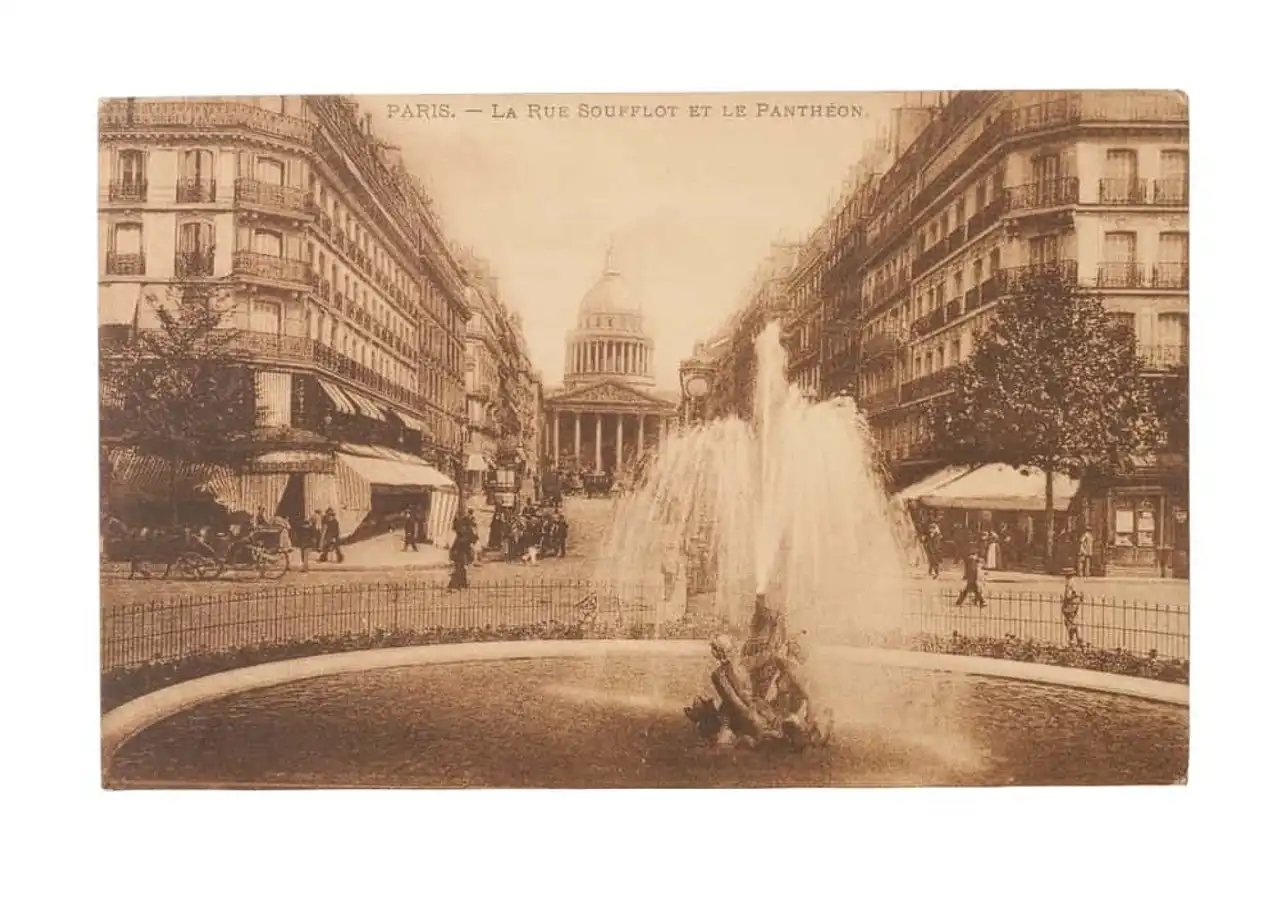
Photo credit: Shutterstock – aboikis
When King Louis XV fell seriously ill in 1744, he made the promise, if he he healed, to rebuild the partially decayed church, located on Mount Sainte-Geneviève in Paris. It was finally many years later, in 1764, that Louis XV laid in person the first stone of the building, whose reconstruction was entrusted to the architect Jacques Germain Soufflot .
A great admirer of Greco-Roman architectural art, the famous neoclassical architect decides to draw inspiration from the basilicas of this time and especially from the Pantheon d’Agrippa de Rome , to imagine the plans of his future monument. His ambition is then very clearly displayed: competing with Saint-Pierre de Rome and Saint-Paul de Londres. Completed on the eve of the French Revolution, the church holds all its promises. With its huge dome and its twenty-two corinthian columns, it is the reflection of a delicate mix between Greek temples and Gothic shrines. Perched at fifty-nine meters at the top of the Sainte-Geneviève building, the Pantheon is undoubtedly one of the most imposing and spectacular buildings in Paris!
During the French Revolution, the church was transformed into a temple, whose vocation was to welcome the ashes of the great French fighters. Napoleon Bonaparte will give him his religious vocation, while the July Monarchy will again make him a secular building. The status of the monument thus evolves at the rhythm of the enlivened history of France of the nineteenth century. In 1871, at the Commune of Paris, the Pantheon even became the meeting place of the insurgents. It was finally only in 1885, during the national funeral of Victor Hugo, that the church of the Sainte-Geneviève mountain became the Pantheon, a place of rest of the great men of the history of France.
Mirabeau was in fact the first to enter it in 1791. His ashes will be removed a few months later and replaced by those of Marat in 1793. The latter will in turn leave the Pantheon, once the Terror and its atrocities denounced. Today Voltaire, Rousseau, Zola and Jean Moulin are still there. Remitted to the forefront of the stage by François Mitterrand during his speech on presidential nomination, the Pantheon, also called the National Sanctuary, is today the guardian of the souls of those who make the glory of France.
What to visit in the Pantheon?
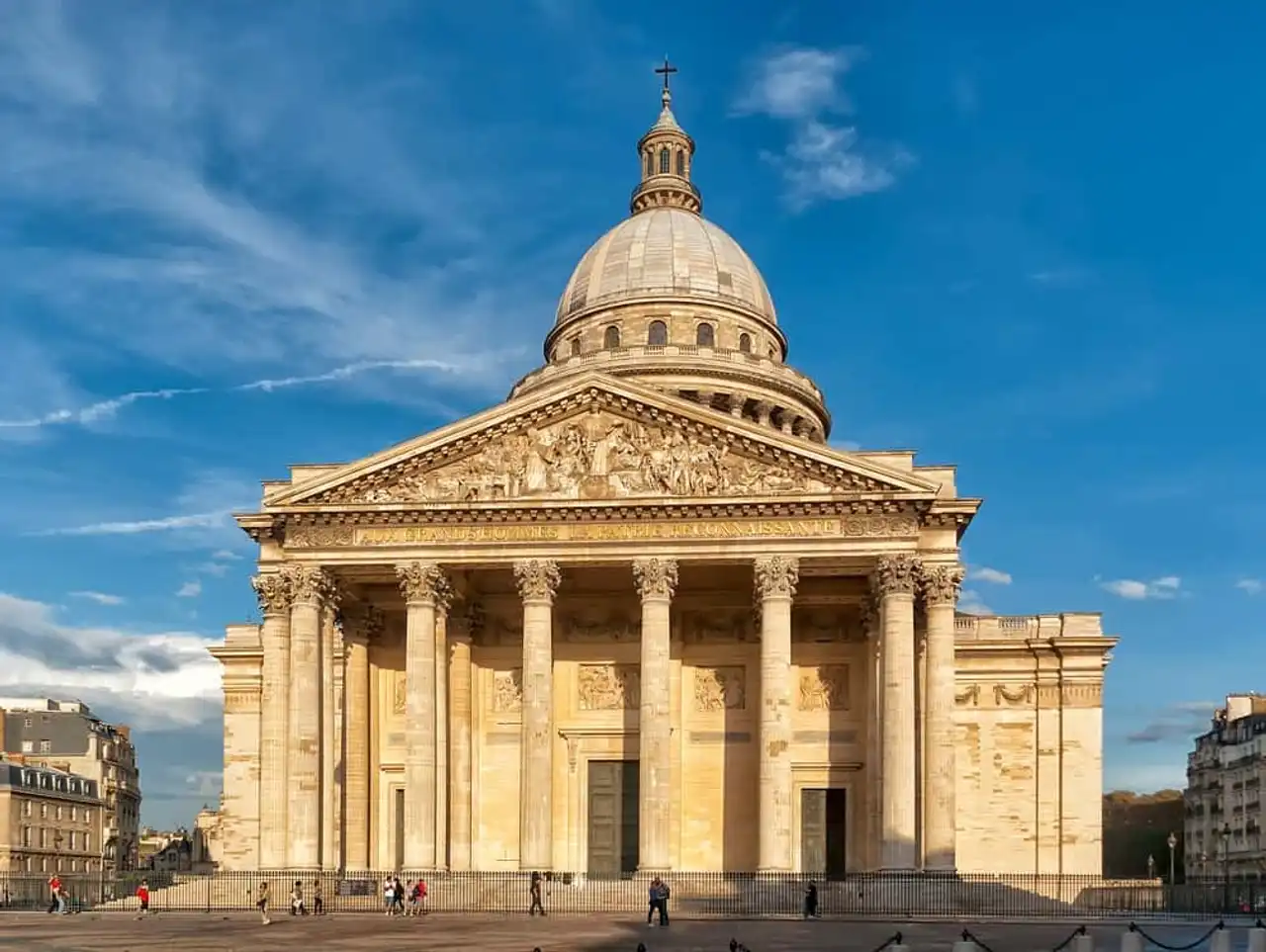
Photo credit: Shutterstock – Nikitin Mikhail
You will be welcomed on the Parvis du Panthéon by the famous "To great men the grateful homeland" . Immediately, the tone of the visit is given. You will be dazzled by this grandiose place or a recollection atmosphere. Raise your head to admire the huge cupola of Renaissance inspiration that culminates at sixty-seven meters high. A cut maquette will allow you to pierce one of the secrets of construction of the Pantheon. Indeed, you will discover that there is actually not one, but three domes built in thousand-sheets. Visiting the Pantheon is also admiring the many paintings on canvas that adorn the walls. You will learn more about the history of the beginning of Christianity, on the Middle Age War Spikes and on the French monarchy.
In the center of the dome, it is impossible to miss the surprising hanging from Foucault , made in 1851. This twenty-eight kilos golden metal ball swings slowly and permanently, without ever returning to the same place. You think that's strange? Well, his creator, the physicist Léon Foucault a perfectly rational explanation: Earth is round! And therefore, between two swings, the Earth turned very slightly and the soil is no longer exactly in the same place. For the anecdote, know that the original is currently at the Conservatoire des Arts et Métiers and that you can only admire a replica of Jacques Foiret at the Pantheon.
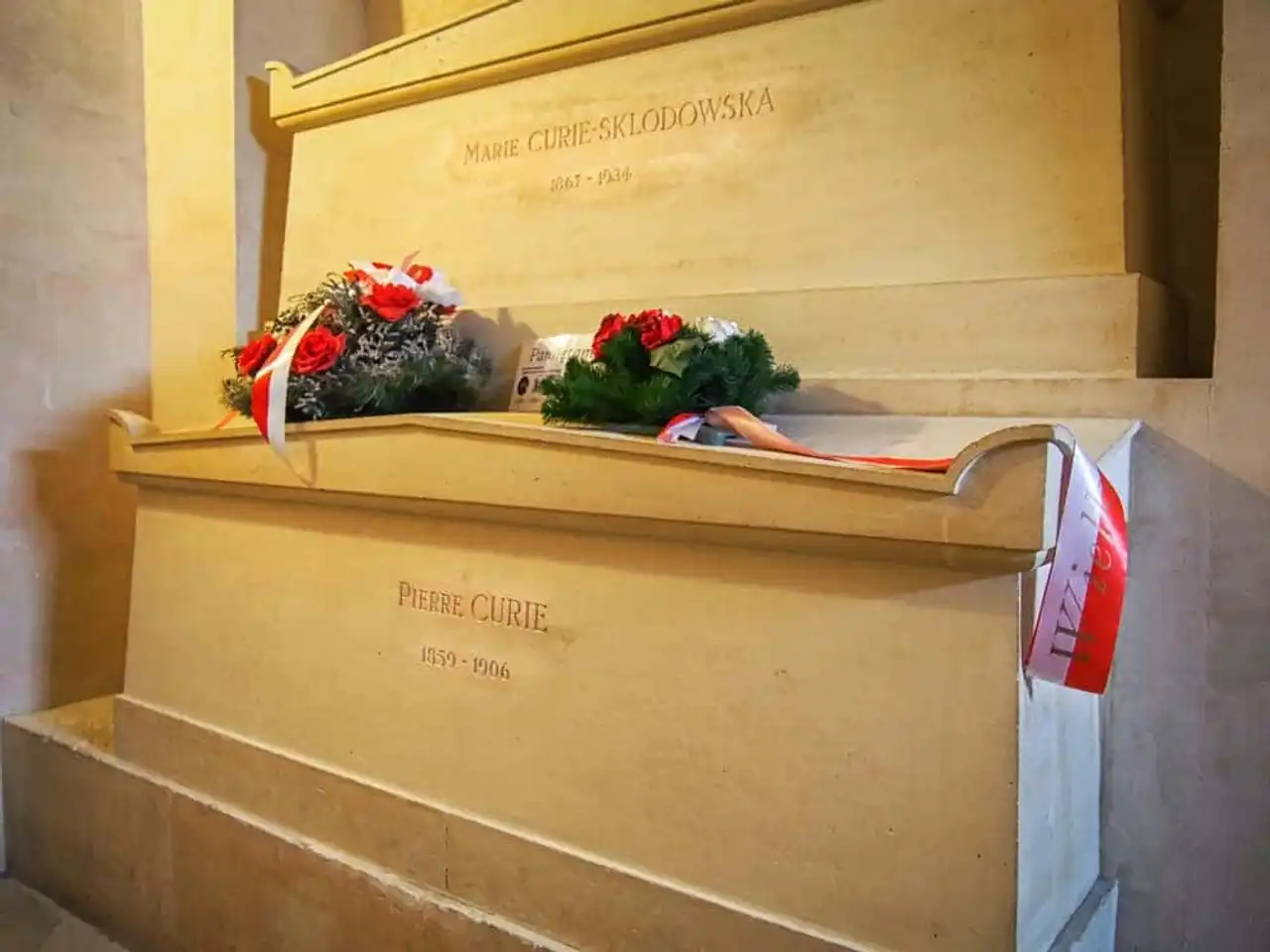
Photo credit: Shutterstock – Roman Belogorodov
Direction then crypts where the burials of men and women buried in the Pantheon rest. You may be moved by this symbolic visit. Today, 80 personalities rest here. Among these personalities, only six women, including Marie Curie and Simone Veil, are buried in crypts under their own merit. The crypts also house the Memorial of the Just of France.
But the visit of the Pantheon does not stop there! D April to October , visitors can climb the two hundred and six steps that separate them from the high parts of the Pantheon. At some hours only and by a small group of fifty people, you can enjoy a magnificent view of the most beautiful areas and monuments in Paris. A view of three hundred sixty degrees not to be missed to admire the Eiffel Tower , Sacred Heart or La Défense and its skyscrapers!
What are the personalities in the Pantheon?

Photo credit: Shutterstock – FrimuFilms
Intellectuals, artists, activists, political figures: the Pantheon houses more than 80 personalities who made the History of France. The "pantheonisation" began in the wake of the French Revolution. It is therefore hardly surprising that Voltaire, a tutelary figure of the Lights, was one of the first to enter the Pantheon in 1791.
Subsequently, he was joined by many men and some women, including:
- the philosopher and writer Jean-Jacques Rousseau;
- the writer Victor Hugo;
- Sadi Carnot, the only president of the Republic was buried in the Pantheon;
- writer Emile Zola;
- the resistant Jean Moulin;
- the scientists Marie and Pierre Curie;
- the economist Jean Monnet, father of the idea of the European Union;
- the resistance and ethnologist Germaine Tillon;
- Resistant and militant Geneviève de Gaulle-Anthonioz;
- the magistrate and political woman Simone Veil;
- author Maurice Genevoix...
You will have understood it, the Pantheon houses a true procession of “great men”. And in fact, women are still few. With the artist’s entry and anti-racist activist Joséphine Baker on November 30, 2021, they number six.
Schedules and rates
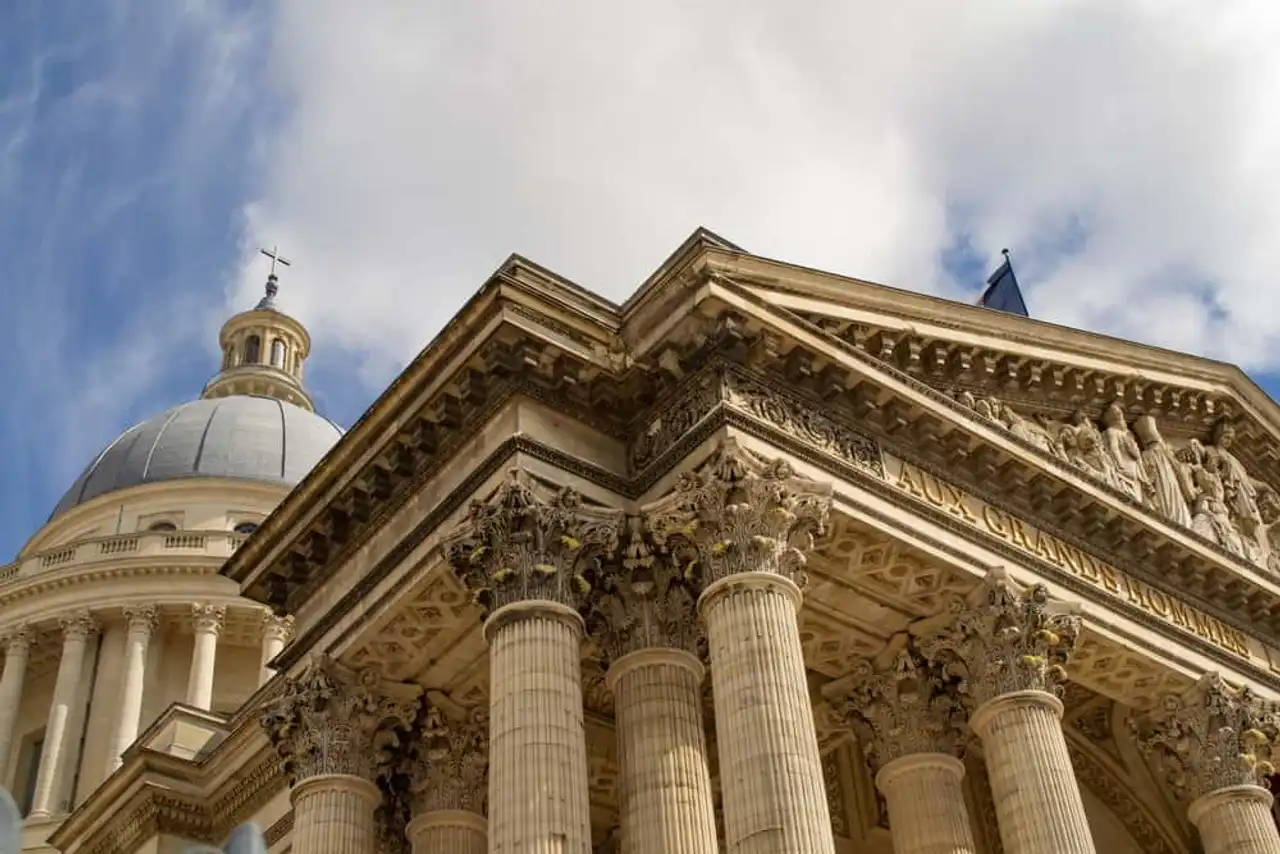
Photo credit: Shutterstock – Lisa Liidemann
Timetable
- From October 1st to March 31st: every day from 10am to 6pm (last entry at 5:15pm)
- From 1 April to 30 September: every day from 10am to 6:30pm (last entry at 5:45pm)
- Closed on 1 January, 1 May, 1 and 11 November, and 25 December.
Note: The visit to the Pantheon panorama is only possible between April and October at 10:15, 11:30, 14:30, 15:30 and 16:30.
Rates
Here are the rates to visit the Pantheon. Note: you can use the Paris Museum Pass to visit the Pantheon and several other monuments and museums in the capital!
- Full rate: 11,50 €
- Freefor persons under 18 years of age with a family, 18-25 years of age nationals of the European Union and regular non-European residents in the territory of the European Union, persons with disabilities (and accompanying persons), job seekers (on presentation of a certificate of less than six months) and holders of the Education Pass.
Note: count 3,50 € additional for the visit of the heights of the Pantheon (applicable fatty). In addition, twin tickets are offered to visit both the Pantheon and the Basilica of Saint-Denis.
How do I get to the Pantheon?
By car
To visit the Pantheon, visit the Latin Quarter, a few steps from the Jardins du Luxembourg, between Boulevard Saint-Michel and rue Soufflot. The parking Indigo and parking Soufflot-Panthéon are at your disposal in Soufflot Street.
However, traffic jams are frequent in Paris and it can be difficult to find a parking space. Therefore, it is preferable to prefer public transport.
By metro
Take it Line 10 station Cardinal Lemoine , then the RER B to the Gare du Luxembourg.
By bus
Many lines make a stop at the Pantheon. You can borrow the lines 21, 27, 38, 82, 84, 85 or 89 .
In Vélib
Why don't you use a Velib to go to the Pantheon? Many bike paths have been built in Paris and a Vélib station is available nearby, street Valette . An original and ecological way to visit Paris!
What to do about the Pantheon?
The Latin Quarter
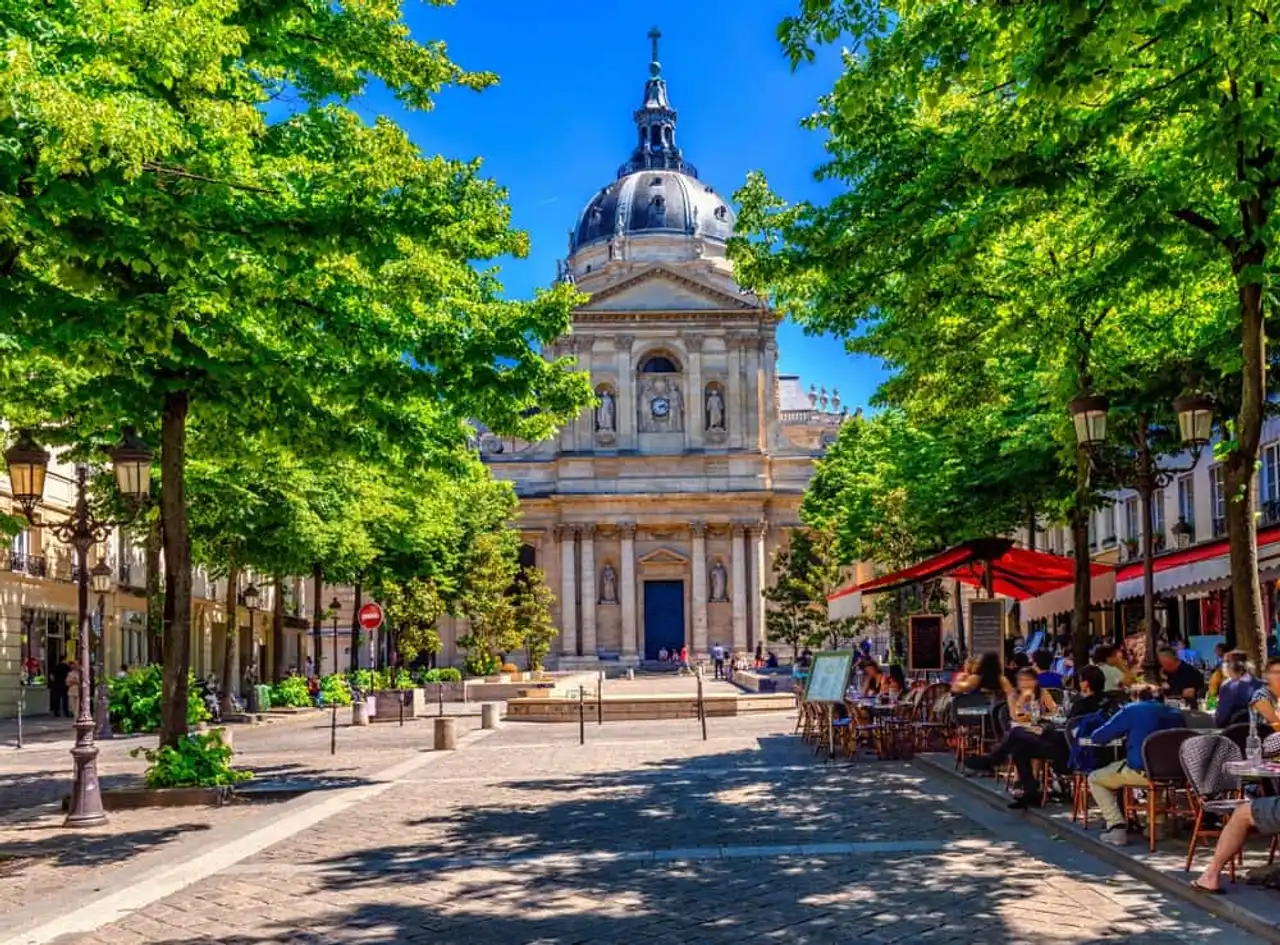
Photo credit: Shutterstock – JeniFoto
What is more Parisian than a walk in the small streets of the Latin Quarter, in the footsteps of Sartre and Beauvoir, May 68 and jazz clubs of the past?
The garden of Luxembourg

Photo credit: Shutterstock – HUANG Zheng
Created in 1612, this large and elegant garden is a place that is both loaded with History and relaxing, away from the bustle of the boulevards. Sitting on its cult chairs in the shade of a chestnut tree, you can easily imagine yourself a hero of a novel by Proust... The garden also houses the Senate and the Luxembourg Museum.
The garden of Plants and its museums
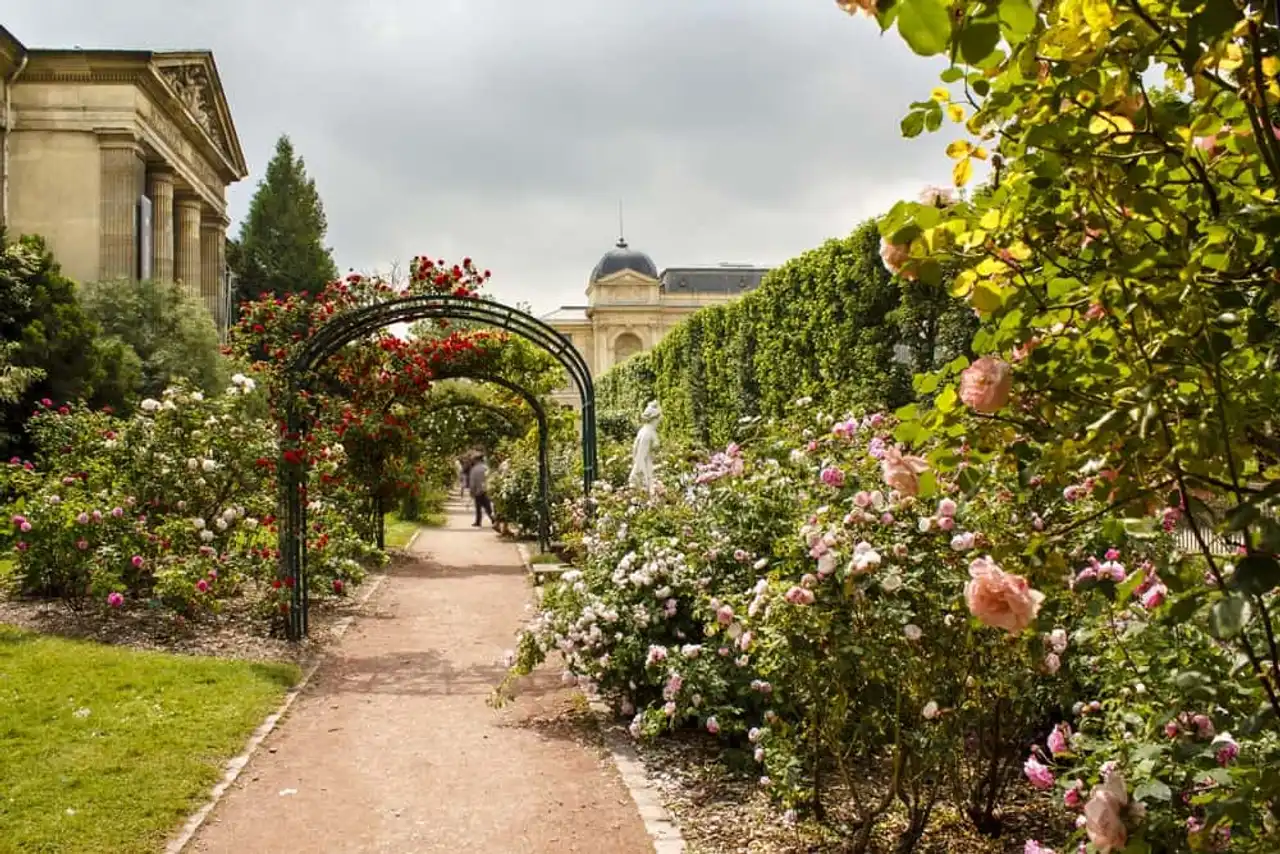
Photo credit: Shutterstock – Rrrainbow
Another option to get green, the garden of Plantes is ideal for nature lovers. In addition to its botanical wealth, it houses the Natural History Museum and the Great Gallery of Evolution.
La Grande Mosque de Paris
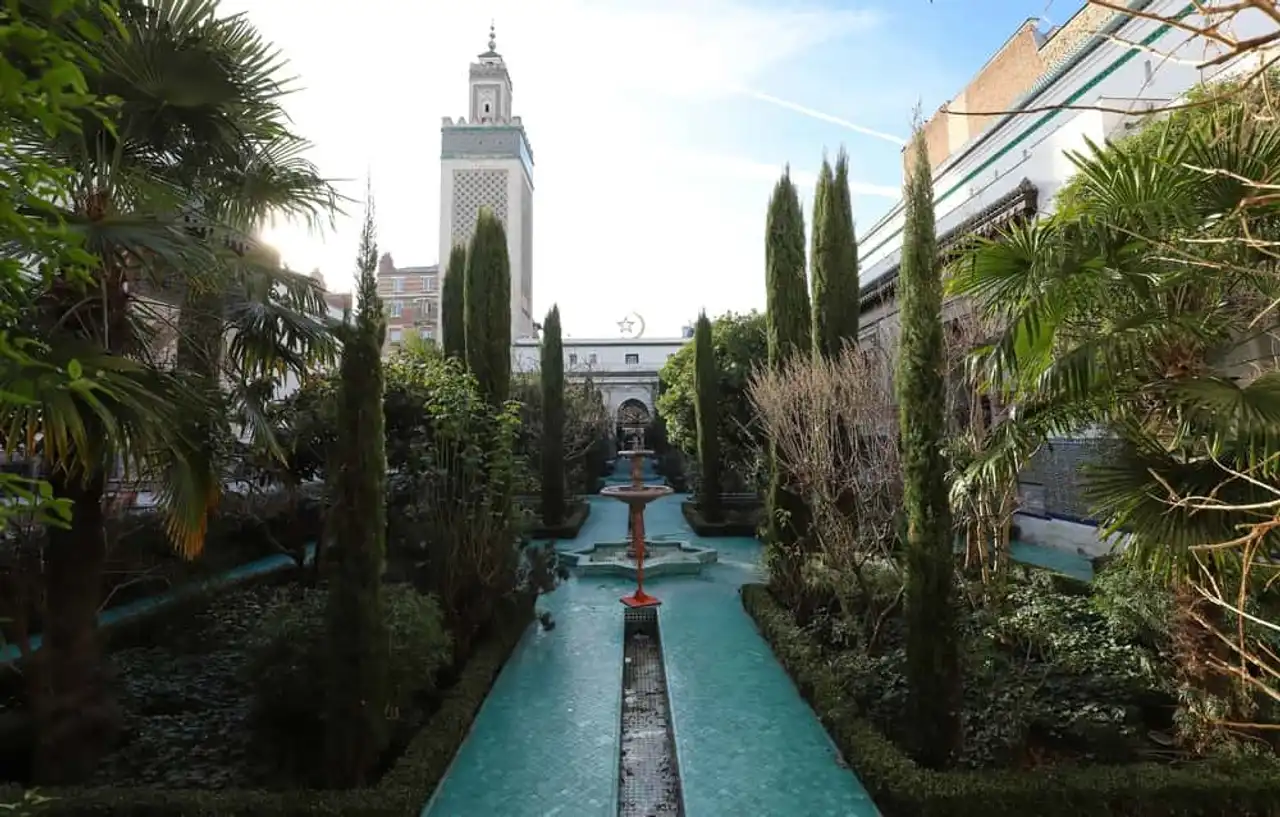
Photo credit: Shutterstock – Petr Kovalenkov
The time of a mint tea or a full visit, the Great Mosque is a unique place of its kind. By pushing its heavy doors, you embark for an immobile journey into space and time.
Where to eat around the Pantheon?
Modern Bakery

Photo credit: Facebook – Modern bakery by thierry rabineau
A delicious bakery in the old place where you can enjoy the time of a ham-beurre, where you can enjoy a café-croissant perfectly Parisian. It is also in this bakery that Emily buys his pastries in the series Emily in Paris .
- Address: 16 Rue des Fossés Saint-Jacques, 75005 Paris
Au P’tit Grec

Photo credit: Facebook – Au P’tit Grec
As its name does not indicate, the Greek P’tit serves as famous generous pancakes. Sweet or salty, and always greedy, they are served on the thumb, and enjoy themselves in the heart of the greedy agitation of Mouffetard Street.
- Address: 68 Rue Mouffetard, 75005 Paris
Kokonor
Direction Nepal and Tibet with this small authentic restaurant, where you can enjoy soups, cakes and typical and nourishing stews. A perfect place to warm up during a winter day full of visits and walks.
- Address: 206 Rue Saint-Jacques, 75005 Paris
Where to sleep around the Pantheon?
Large 2 pieces close to Notre-Dame
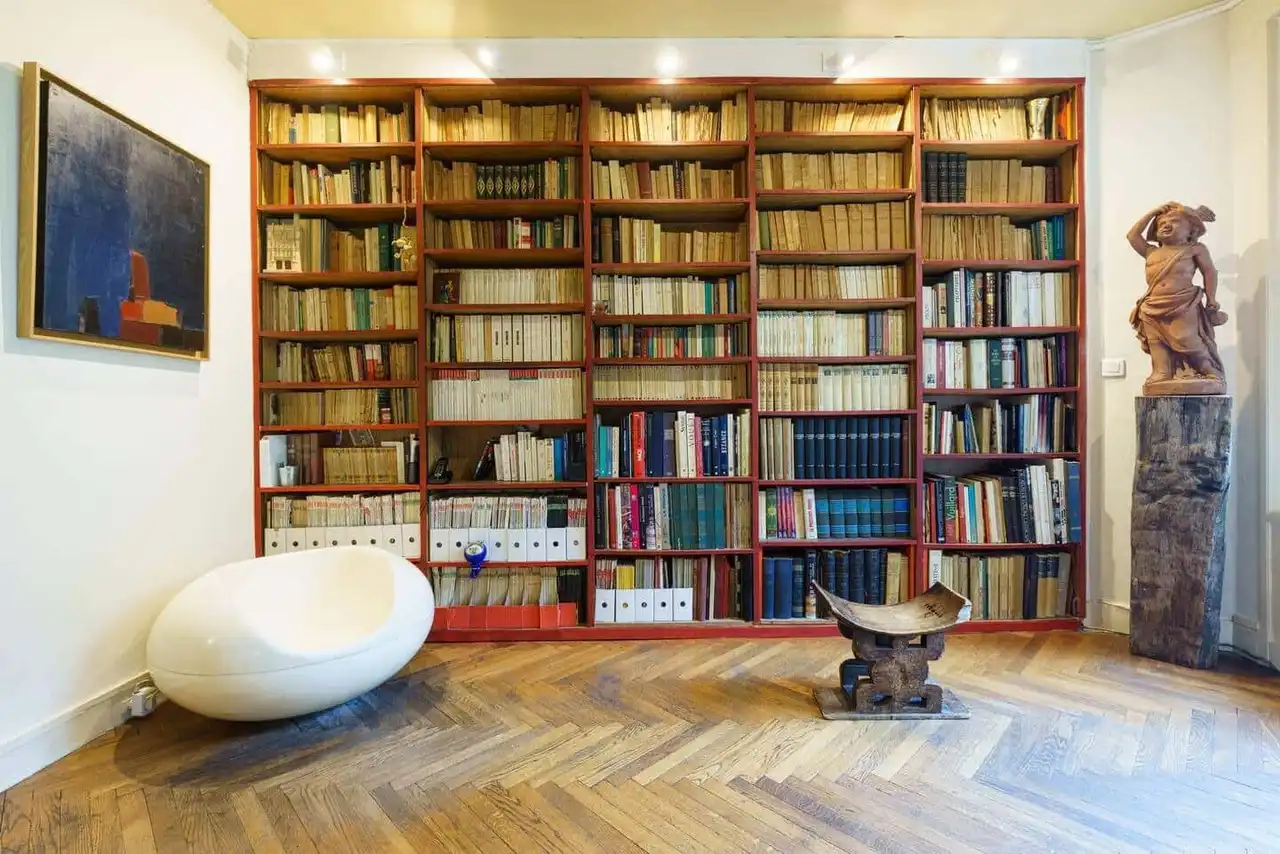
Photo credit: Airbnb
With its walls covered with huge libraries, this elegant apartment is the perfect place to prolong your cultural experience in the Pantheon. Located halfway between the latter and Notre-Dame, it will plunge you into the heart of a timeless Paris.
Charming apartment in the Latin Quarter
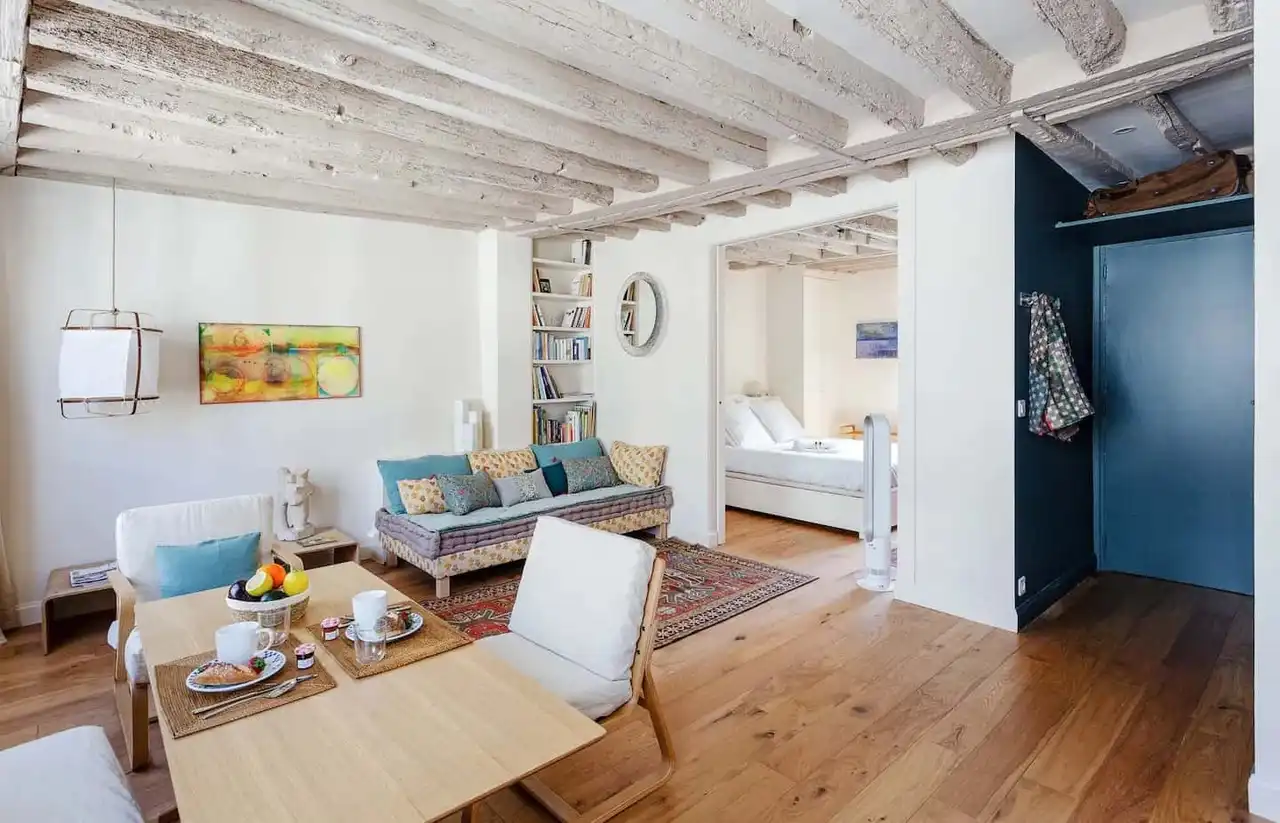
Photo credit: Airbnb
Bright and cosy, this apartment is a perfect little nest for a stay in Paris. Located near the Place de la Contrescarpe, it is as welcoming as the owner of the place!
Hotel des Grands Hommes
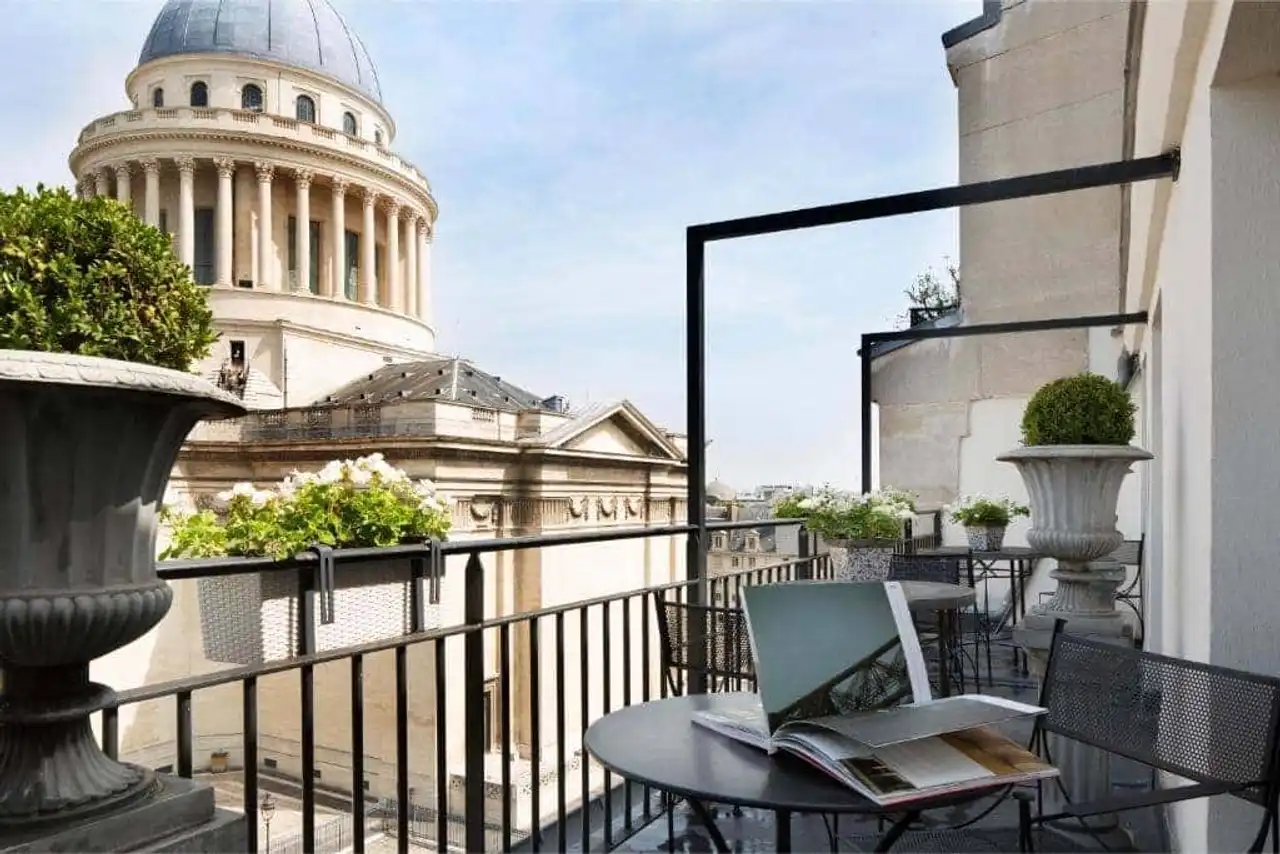
Photo credit: Booking
A room with direct view of the Pantheon, is it tempting you? The hotel has chosen to put it, as well as the personalities it houses, in honour of the legendary monument. Moreover, its classic and refined decor is a historical journey alone!
FAQ

Photo credit: Shutterstock – Luciano Mortula – LGM
What is the duration of the visit?
Count an hour to visit the Pantheon and admire the panoramic view.
What is the best time to visit the Pantheon?
The ideal is to visit the monument between April and October in order to have access to the high parts. Avoid peak hours, and prefer the days when the weather is clear in order to make the most of the view. Also think about setting yourself on the predefined schedules of visits to the high parts.
Why should he book his ticket online?
Book online will allow you to save valuable time by avoiding queue at the entrance. This will also facilitate your access to the panoramic view, where places are limited.
What is the waiting time to visit the Pantheon?
With a ticket booked online, the waiting time will be almost zero. Otherwise, the waiting is often 15-30 minutes.
Is there a guided tour of the Pantheon?
Yes, different visits-conferences are offered to the Pantheon. The monument also regularly offers special events that allow you to discover it differently. In addition, an audioguide is available in 11 languages to accompany your free visit.
Are the photos allowed?
Yes, you can take pictures in the building’s enclosure. Keep in mind, however, that the Pantheon is a place of memory where discretion is set.
Are there dressing rooms in the Pantheon?
No, there is no locker room, no record, and bulky or dangerous objects are prohibited.
Is the Pantheon accessible to people with reduced mobility?
An access ramp is available for PMRs, as well as foldable chairs for people who need it.
Are pets allowed in the Pantheon?
No! Animals must stay at the Pantheon’s door, excluding guide dogs and assistance.
Can I visit the Pantheon virtually?
Yes, a 30-minute guided tour video is available on the Pantheon site, Right here .








Loading comments ...